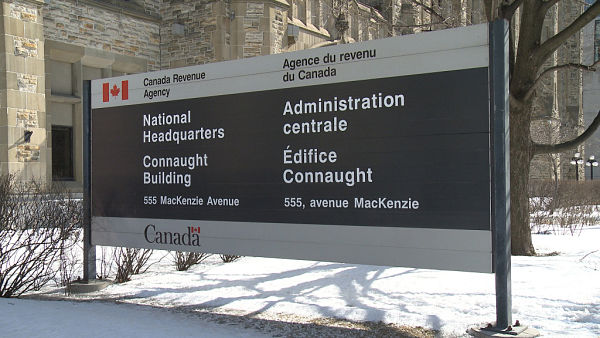–
US Tax and Reporting Obligations – How They Stand Today
Every year, Americans abroad pay thousands of dollars to file taxes in two or more countries which apply tax treaties that will often (but not always!) offset any balance of US taxes due. While accountants make money from obliging expats and IRS agents review returns that generally add little to the coffers that pay them, US citizens living outside of the states must contend with an overwhelming amount of compliance, as well as detailed and punitive foreign reporting. Sadly, we now know that any relevant relief for American emigrants has been overlooked by both of the tax reforms bills recently passed in Congress.
Residency-Based Taxation Recommendation – Simpler or More Complex?
Groups representing US citizens living and working abroad have reached out to both the House and the Senate and received resounding support with promises that work is underway. However, to the contrary, the recently passed House and Senate tax bills only offer US corporations a territorial tax policy exempting them from taxation on their foreign-sourced income. Relief for American individuals who live and work abroad does not appear forthcoming.
A recommendation put forth by the American Citizens Abroad (ACA) on behalf of American expatriates recommended a residency-based taxation (RBT) policy. This would contrast with the existing citizen-based taxation (CBT) rules which affects world-wide income for all US citizens, irrespective of residency. The suggested policy would exempt the foreign income for Americans who truly qualify as residents of a foreign country. The test for an American to be a “qualified individual” is set forth in section 911 of the Internal Revenue Code (IRC). It considers whether the person is a bona fide resident of a foreign country for at least one full uninterrupted tax year regardless of employment status. The bona fide residence (BFR) test as set out in the IRC is determined on a case-by-case basis. Factors to consider include, intention of the trip, nature and length of stay abroad, whether you are maintaining a home in the US, where your family is residing, among other factors.
A detailed side-by-side comparison of the proposed RBT versus the current law, first published in December of 2016, can be read at https://www.americansabroad.org/media/files/e547e516/Residency-Based_Taxation_ACA_Side-By-Side_Comparison_Vanilla_Approach_171101_v2_.pdf. It highlights the basic tax-neutrality for US tax revenues from foreign-sourced income, which is essential for Congressional consideration. The RBT policy does not recommend any changes to US source income or gains from sales of US real property, which would continue to be taxable for federal income tax purposes. It would also not apply to US armed services or diplomatic corps stationed abroad.
Special rules and definitions set out in existing bilateral tax treaties would still apply to those living in certain countries. In addition, lucky residents of nations deemed tax havens would still be eligible for the RBT. Individuals would have the ability to “opt out” of the RBT prior to relocating should the net tax result work against them. This might be an option for someone who would be frequently traveling back to the US and have no interest in “day counting”. Or perhaps a person who has an estate in the US that would be better served under the current CBT would consider the opt out.
Simplification of Tax Regime through Additional New Taxes
The ACA’s proposal goes further to suggest any real losses to tax revenue could be mitigated by imposing a departure tax on Americans newly relocating but whose plan is to be abroad short term. The minimum threshold for triggering the departure tax could be set relatively high so as not to be punitive. Those Americans making a permanent or long-term move would meet the criteria for the RBT program while those who are currently abroad and show they are “qualified” would have the new policy automatically apply. This suggestion would ultimately shift the tax burden to the ultra-rich who leave stateside to avoid US taxation rather than impede average Americans from pursuing opportunities.
When a Citizen Taxpayer is Not a Priority
As it stands, the bulk of the tax reform is aimed at simplifying an incredibly chaotic tax system and aiding American multinational corporations in hopes of stimulating domestic job creation. This clearly leaves most of the bills’ advantages for US citizens stateside. For those of us living and working abroad, it looks like our relief is still just a hope in the future.
The “Reed Amendment” and Admissibility to the United States: Will I Be Barred From Reentry After Renunciation?
By Daniel P. Joyce on August 27, 2015 Posted in SmarterWaystoCross.com
A common concern about renunciation of U.S. citizenship is that of admissibility to the United States thereafter. Many people tell me that they have read about a permanent ban on reentry to the United States following renunciation.
There is no automatic ban on reentry following renunciation. (Renunciations must be made outside the United States, typically at a U.S. consulate.) There is a provision of the law that justifies the concern, but an understanding of that law will reveal why there is very little to worry about.
One of the consequences of renunciation of citizenship is the conversion of one’s immigration status from citizen to “alien.” Nowhere is the stark reality of that conversion more apparent than at the border during one’s first attempt to reenter as a visitor. Many former citizens continue to have friends, relative or even seasonal vacation property in the United States, and return visits are not unusual. Without U.S. citizenship, the alien no longer has the right to enter the U.S. and there are no presumptions in his/her favor. For the first time, the newly converted alien must prove that he/she is a legitimate visitor (not intending to live or work in the United States) and that he/she is admissible.
There are many grounds of inadmissibility to the United States contained in section 212 of the Immigration and Nationality Act (INA), ranging from criminal convictions, prior immigration violations, terrorism, public health concerns, and others. Tacked on to the end of section 212, in subsection 212(a)(10)(E), is a curious provision often referred to as the “Reed Amendment” after the congressman who proposed it. The measure was a legislative reaction (many would say overreaction) to a billionaire named Kenneth Dart, who renounced his U.S. citizenship in 1994 and moved to Belize. It was apparent that Mr. Dart was doing so to limit U.S. income tax liability. The case received media attention that happened to coincide with movements in Congress to strengthen the immigration laws regarding illegal immigration and the tax laws regarding treatment of “expatriates.”
Twenty years ago, renunciations were less frequent than today. In the mid-1990’s there were only a few hundred renunciations annually worldwide. A New York Times article from 1995 estimated that “a dozen or more of those who [renounced annually] are multimillionaires.”
The Reed Amendment was aimed at those multimillionaires. It gained enough bipartisan support to be enacted as part of the Illegal Immigration Reform and Immigrant Responsibility Act of 1996. The measure in its entirety states:
Any alien who is a former citizen of the United States who officially renounces United States citizenship and who is determined by the Attorney General to have renounced United States citizenship for the purpose of avoiding taxation by the United States is inadmissible.
Passage of the measure was its high-water mark because its history since that time has been marked by ineffectiveness and disuse. The executive branch never issued implementing regulations, and in 2002, the attorney general’s authority to make the tax avoidance determination was transferred to the Department of Homeland Security (DHS). At that time, six years after the law’s enactment, not one person had ever been excluded from entry to the United States for renouncing citizenship for tax avoidance purposes. The same is true today. To our knowledge, the DHS has never made a formal determination of inadmissibility under INA §212(a)(10)(E).
In 2003, the Staff of the Joint Committee on Taxation issued a report to Congress on the “Tax and Immigration Treatment of Relinquishment of Citizenship and Termination of Long-Term Residency,” which explained the “operational complications” involved in implementing the Reed Amendment. At the heart of the problem was the need for the Internal Revenue Service (IRS) to share information with DHS and other agencies to facilitate a determination of tax avoidance. However, tax information is highly confidential. Internal Revenue Code (IRC) §6103(a)(3) prohibits IRS employees from disclosing “any return or return information” to any other person or agency unless permitted under the statute. There was, and still is, no such provision to allow the sharing of tax return information with DHS for Reed Amendment purposes, and neither the IRS or DHS has promulgated any implementing regulations to make it happen. Accordingly, there currently are no procedures in effect to implement the law.
In 2014, there were 3,415 renunciations worldwide, which was a 13 percent increase over the previous year and close to ten times the average number of annual renunciations in the mid-1990’s. And the trend is upward: There were more than 1,000 renunciations in the fourth calendar quarter of 2014 alone. There have been at least 15,000 renunciations since the passage of the Reed Amendment in 1996—many of whom can be presumed to be multimillionaires—but no reported case during that time of a finding of inadmissibility for tax avoidance purposes.
The consular officer does not collect any tax information at the renunciation appointment and does not make a determination, or even a recommendation, concerning future admissibility. The renunciation process does not require the applicant to state a reason for renouncing. Unless the applicant decides to volunteer such information, the application is devoid of any express statement regarding the person’s motivation for renouncing. We generally advise against making such a voluntary statement.
The prudent former citizen would be careful about making any inflammatory comments about the U.S. tax system or taxes in general, whether at the consulate or at the border. It is within the authority of the inspecting Customs and Border Protection officer at the border to make a finding of inadmissibility on any of the grounds contained in INA §212. During the inspection process, a person’s place of birth or prior U.S. citizenship may give rise to questions about nationality, because a U.S. citizen is required by statute to claim U.S. nationality and present a U.S. passport. Someone who has renounced citizenship need only present a copy of the Certificate of Loss of Nationality to confirm that he/she is no longer a U.S. citizen. No explanation or reason is required or recommended. Despite its disuse, the Reed Amendment is still a valid law and therefore has the potential for use and misuse, even in the absence of the formal determination contemplated by its terms. For obvious reasons, the inspection booth during entry to the U.S. is neither the time nor the place to make political statements or constructive criticisms of the U.S. tax system.
Despite US citizenship being the most coveted in the world, the number of people who voluntarily choose to expatriate constantly rises. US tax filing burden and complexity, associated tax return preparation cost, potential steep penalties for even an innocent mistake in a tax return or a disclosure, and a wide reach of the IRS across generations are all contributing factors for many Americans who reside outside of the US and possess a citizenship of another country. The scrutiny will only intensify once the Foreign Account Tax Compliance Act of 2010 is fully phased in on January 1, 2015
To expatriate US citizenship is never an easy decision and no one can provide an assurance on what may happen in the future especially for professional clients who tend to often cross the border for business purposes.
Our network includes qualified immigration lawyers with whom we always suggest our clients consult before making the decision to expatriate. There are several ways expatriation can be accomplished from the legal perspective. It is important that an individual understands all the potential consequences which may result from this decision, including inadmissibility of entry into the United States. If clients nevertheless are determined to proceed with the process, we assist them with their last year of US tax compliance which can be extremely complicated and if incorrectly administered can lead to significant penalties or filing requirements even after the expatriation act.





